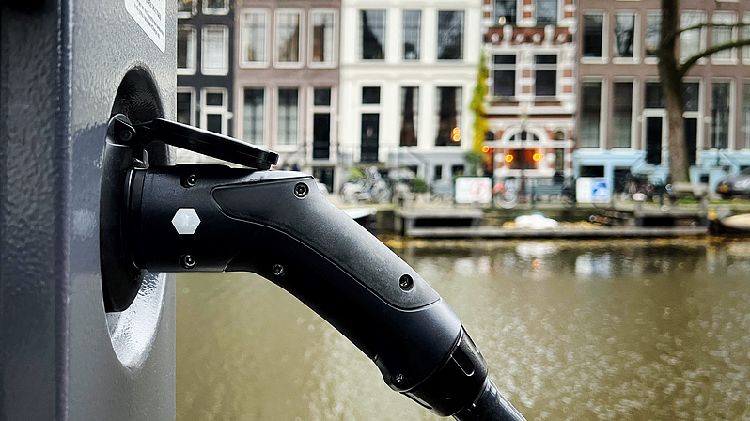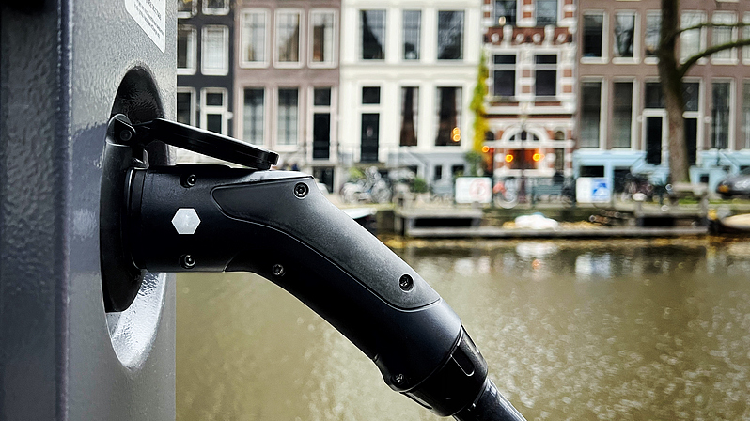Is there a trade war between China and the EU?


<img src='https://news.cgtn.com/news/2024-10-07/Is-there-a-trade-war-between-China-and-the-EU–1xvj9hpp5qU/img/cc7b7ecceb80485589648a22f6265fb1/cc7b7ecceb80485589648a22f6265fb1.png' alt='A charging point for electric cars in Amsterdam. /CFP'
Editor’s note: Cui Hongjian is director of the Center for the European Union and Regional Development Studies, Beijing Foreign Studies University. The article reflects the author’s opinions and not necessarily the views of CGTN.
With the results of the vote of EU member states to impose tariffs on electric car imports from China, trade relations between China and the EU have become strained. This not only shows that the intensive policy consultations between China and the EU, two important trading partners, have not achieved the desired results, but also that the EU will insist on adopting a self-centered approach rather than mutual compromise in dealing with trade frictions.
If the EU fails to compromise and manage expectations during the final negotiation phase before the end of October, the EU and China could slide to the brink of a trade war. Hungary Prime Minister Viktor Orban believes that Europe is launching an “economic cold war” against China, and some European media have begun to seriously discuss possible retaliatory measures that will be taken by China, and even believe that it is difficult for China and Europe to avoid a mutually escalating or even protracted “trade war.”
Unlike before, the European side set a very high political tone from the beginning in the countervailing case against Chinese-made electric vehicles, not only to maintain the “industrial security” of European automobiles, but also to set a precedent for the implementation of its “economic security strategy.” Therefore, even before the relevant European auto industry and companies would file complaints against China’s electric vehicle products, the EU institutions took the initiative to open an investigation on their behalf, and turned a deaf ear to the opposition of the European business community during the investigation.
Once the EU’s policy expectations are raised to a political and security level, it has actually deviated from economic principles and market rules, not only setting itself on fire, but also pushing China-EU economic and trade cooperation into an extremely difficult situation.
From this investigation, the European side found that automobile companies from Germany and other European countries occupy a considerable share of China’s electric vehicle exports to Europe. Once the European side imposes high tariffs, both Chinese and European car makers will suffer from higher cost and become victims. European consumers will also lose the opportunity to obtain more cost-effective goods due to the increase in threshold for Chinese-made electric vehicles to enter Europe.
What’s more, while the use of tariff instruments to protect its auto industry from “unfair competition” is the “original intention” of the EU, the long-term consequence must be that the European car industry will find it difficult to achieve healthy and sustainable development under such excessive unfair protection.
<img src='https://news.cgtn.com/news/2024-10-07/Is-there-a-trade-war-between-China-and-the-EU–1xvj9hpp5qU/img/54733936f4df485d966f796d02e3c4a7/54733936f4df485d966f796d02e3c4a7.jpeg' alt='The exterior of a BYD Co. electric vehicle showroom, operated by Schiller Auto, in Budapest, Hungary, on May 27, 2024. /CFP'
China and the EU are both leaders and main drivers of the world’s economic transformation and upgrading, and the two sides have a high degree of policy consensus and similar industrial development directions in the dual transformation of a green and digital economy. As a pioneer of the automobile industry, Europe has rich technology accumulation and a mature market system, while China is a rising star with outstanding technological latecomer advantages and perfect industrial scale. The two sides in electric vehicles and related green industries should be able to achieve complementary advantages and form a strong alliance. However, the European side regards itself as the “authentic market economy” and classifies China as a “market distortion,” which will let competition rather than cooperation, and closure rather than openness dominate in its relations with China.
While the friction and disputes related to electric vehicles are only a part of the greater relations between Europe and China, but the final decision represents a trend. Compared with 100 percent tariffs on Chinese-made electric vehicles in the U.S., the EU may be able to comfort itself by contrasting European-style “de-risking” with U.S.-style “decoupling.” However, this kind of competitive thinking in political positions and the unsophisticated strategy of playing cards between China and the U.S. will greatly sacrifice Europe’s economic interests and internal unity.
Whether it is Orban’s warning about the “economic cold war” with China, the strong opposition of German car makers to the tariffs, or the concern about the “trade war” between China and the EU expressed by most EU countries, Europe should realize that any deviation in China policy may cost a greater price than its economic benefits.
The time between the continuation of negotiations on October 7 and the EU’s final decision at the end of the month is running out. Although time is pressing, in order to avoid a trade war between China and the EU that will drag down the world’s economic recovery, transformation and upgrading, the possibility of a more reasonable solution in subsequent negotiations remains.
The first direction should be to accept the experience of the two sides in the previous PV dispute compromise and reach a consensus on the implementation of a minimum price for Chinese-made electric vehicles. Although that would not ultimately solve the problem, it ensures some limited cooperation between China and the EU in the trade of electric vehicles. The second should be to meet the demands of most European countries, especially those countries that abstained from voting.
China and the EU should shift their relationship in the field of electric vehicles from trade competition to industrial cooperation. Whether this plan can be implemented also depends on whether the European side blindly adheres to the so-called “EU rules” in future cooperation, or can work with China to find common ground, so that China-EU green industry cooperation remains a win-win feast rather than a zero-sum game.

